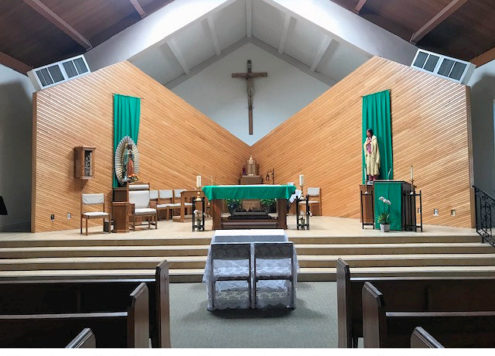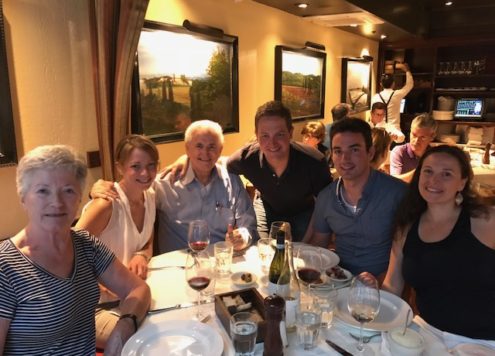When Jesus asked His disciples who did people say He was, Peter spoke up and said: “You are the Christ ( the anointed One ), the Son of the living God?” That’s when Jesus declared him “blessed” because his profession of faith did not come to him naturally as a creature of “flesh and blood”. It did not come of his own volition nor was it derived from mental argument or exhaustive scientific research. It came from his “Heavenly Father”. ( Matthew 16:17 ) In other words, it was a gift of God.
Faith is a gift; we do not merit it nor can we impose it upon others. It is the sort of gift that is meant to be lived because it imparts meaning to our lives. I have been privileged to write a book about this incredible gift, titled: What is this thing called Faith? The beauty of faith is that it renews, not only those who have been chosen to receive it, it also renews the world around them. St. James says that “faith without good works is dead.” ( James 2: 14 ) The good works he was talking about were not “the works of the law”, but the healing works and love of Christ for our fellowman. A bell is not a bell ’til it is rung. A song is not a song ’til it is sung. In the same way, faith is not a gift ’til it is lived.
When we declare our faith in Jesus as the Son of the living God, we are committing ourselves to live like Him, to do as He says. Before leaving this earth, Jesus said to His followers: “a new commandment I give you, love one another as I have loved you.” ( John 13: 34-35 ) This love of Christ is not something abstract or unattainable. It is real. And, we will be judged by it on the last day. In Matthew 25, Jesus explains what He expects of us by means of a parable. It is called the parable of the last judgment. We will be divided, Jesus says, into two groups like sheep and goats. The sheep ( the faithful ones ) will be on the right whereas the goats ( the unfaithful ones ) will be on the left, and this is how the Lord will address us. “I was hungry and you gave me food; I was thirsty and you gave me to drink; I was naked and you clothed me; I was homeless and you gave me shelter: I was sick and you comforted me: I was in prison and you visited me.” Then, the Lord goes on to say that the unfaithful will ask: ” when did we see you hungry or thirsty or naked or homeless or sick or in prison?” The Lord’s surprising answer: ” whatsoever you do to the least of my people, that you do unto me.” ( Matthew 25:40 )
Not every Christian, regrettably, follows Jesus’s new commandment, but those who do ( and we’re all commanded to do so ) are heroic witnesses to the power of God’s love for all His children. Just recently, a German nun, Sr. Ruth Pfau, who was also a physician, passed away in Muslim Pakistan and was honored with a state funeral. She took care of people with leprosy in Pakistan, effectively eliminating the threat of this terrible disease there and spread her work into Afghanistan. Muslims loved and accepted her wherever she went because she had no other purpose, no other agenda than to do as Christ commanded: “whatsoever you do to the least of my people you do unto me.” Good example is the best witness. It is also the best form of ecumenism for it unites, as one, people of different persuasions and beliefs. Thank God for those courageous Christians who reach out in love to their fellowman as Christ commanded.
Faith is a gift. Let it be a living faith, however, that transforms by faithful witness your life, and the world around you.
Fr. Hugh Duffy











Recent Comments